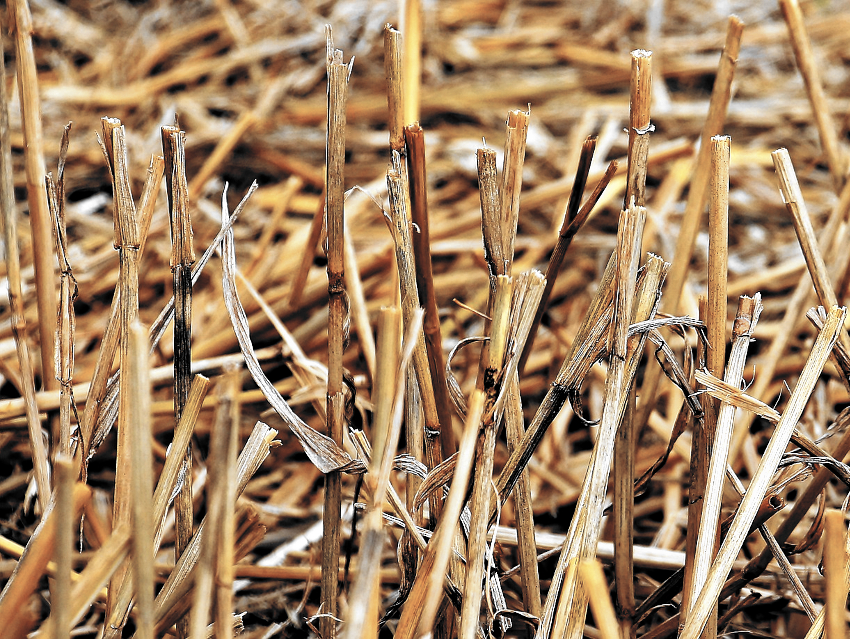Lignocellulose is a renewable resource, found, e.g., in agricultural waste such as wheat straw. It could be an alternative to fossil resources for the sustainable production of fuels and chemicals. However, lignocellulose is difficult to degrade and use due to the presence of lignin, a complex aromatic polymer that encases the structure and blocks access to the useful polysaccharides in the material. Developing industrial biocatalytic processes for breaking down lignin is particularly challenging.
Neil C. Bruce, University of York, UK, and colleagues have studied the fungus Parascedosporium putredinis NO1, which was isolated from wheat straw-containing compost, and found that it secretes lignocellulose-degrading enzymes. The team obtained microbes from wheat straw-enriched compost and set up liquid cultures with wheat straw as the only carbon source. The fungus P. putredinis NO1 can dominate such cultures in the late stages of wheat straw degradation. The researchers then tracked the degradation of wheat straw by this fungus over time, measuring mass loss and enzyme activity. They also analyzed the gene sequences that encode the produced enzymes and collected secreted enzymes from the fungus culture.
The team found a diverse range of potentially industrially relevant carbohydrate-active enzymes (CAZymes). Of particular interest was one enzyme with oxidase activity and no cofactor requirements. This enzyme cleaves β-ether units, which are common in lignin, and releases tricin (a pharmaceutically relevant flavonoid) from the lignin. Treatments with this enzyme could increase the digestibility of lignocellulosic biomass, making it possible to produce valuable products from lignin while decreasing processing costs. Pretreatment with the oxidase can, for example, significantly boost the saccharification of wheat straw when used together with a commercial enzyme mixture.
- A multi-omics approach to lignocellulolytic enzyme discovery reveals a new ligninase activity from Parascedosporium putredinis NO1,
Nicola C. Oates, Amira Abood, Alexandra M. Schirmacher, Anna M. Alessi, Susannah M. Bird, Joseph P. Bennett, Daniel R. Leadbeater, Yi Li, Adam A. Dowle, Sarah Liu, Vitaliy I. Tymokhin, John Ralph, Simon J. McQueen-Mason, Neil C. Bruce,
Proc. Natl. Acad. Sci. USA 2021, 118, e2008888118.
https://doi.org/10.1073/pnas.2008888118




